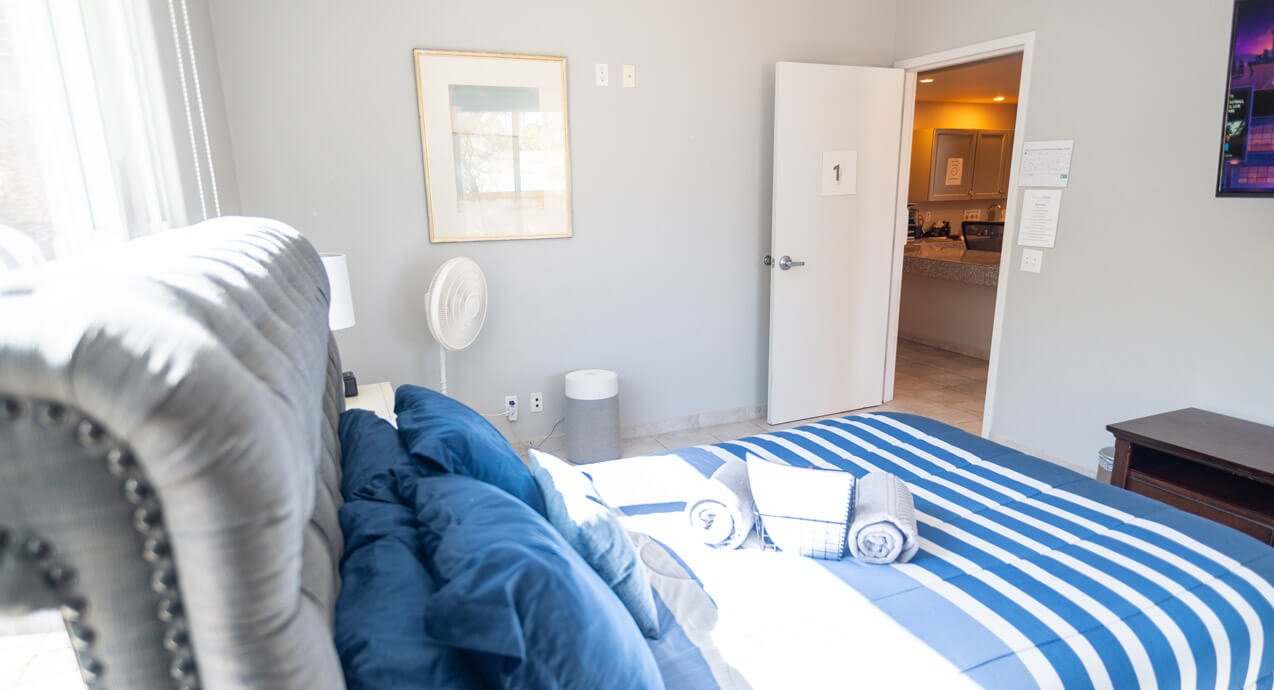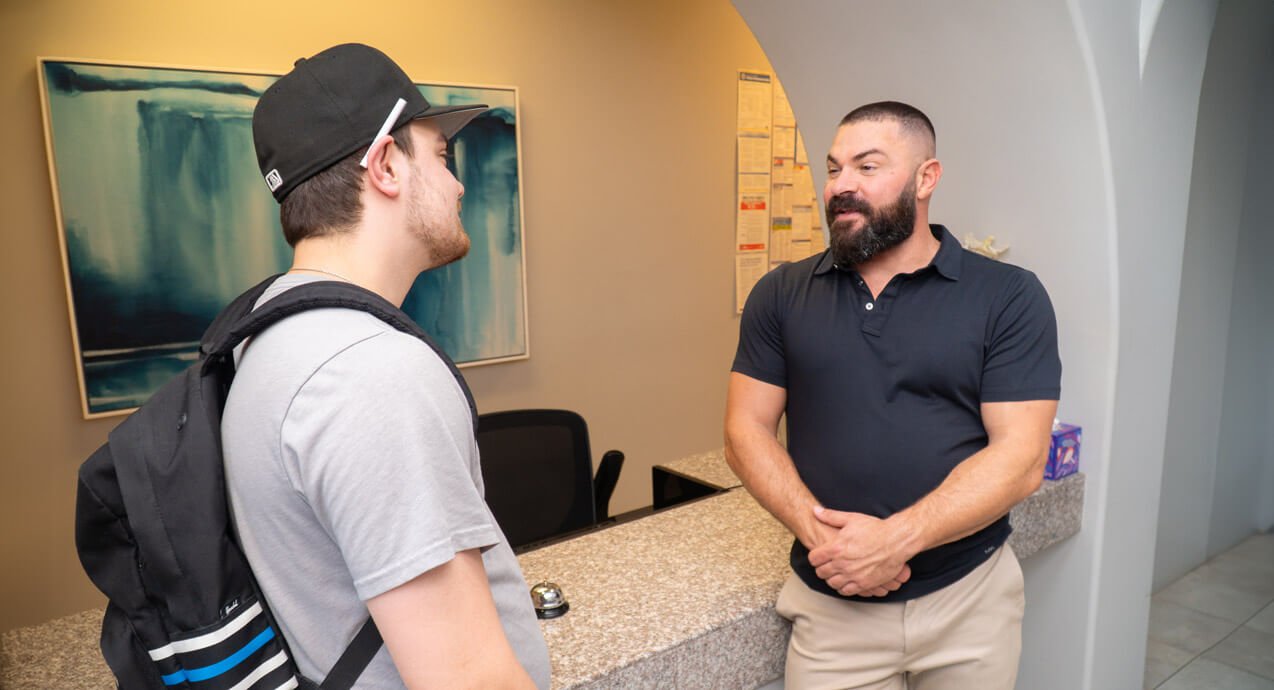What to Expect During Detox: Expectations vs. Reality
This page has been clinically reviewed by Dr. Sean Barlow.
For some people, a known devil is better than an unknown angel. No matter how difficult it is to struggle with the effects of substance use disorder, the fear of what it could be like to get help and get healthy can be a major barrier to moving forward. Compounding the problem is the fact that a major hallmark of addiction is denial: the ability to convince yourself that the current situation isn’t that bad. Second, cultural depictions of drug and alcohol detox tend to be overly dramatic and frightening. With few people willing to talk publicly about their own experiences of getting clean and sober, how are you supposed to know what to expect? Understanding some typical detox expectations vs. reality can help prepare you for seeking help, for yourself and a loved one.
What Is Detox and How Does it Work?
Addiction is often described as an illness. This is because drug or alcohol abuse interferes with the body and brain’s functioning. Depending on the substance, long-term abuse can create physiological dependency.
When an individual with an addiction attempts to stop using, their body has a negative reaction known as withdrawal. Withdrawal symptoms are varied and can range from moderate to potentially fatal. Without medical supervision and support, people going through withdrawal can experience very serious complications.
Withdrawal is also very emotionally and physically painful. Since using the substance often mitigates symptoms, there is a high risk of relapse during withdrawal. This can make it very difficult for people with substance use disorder to take the first steps toward sobriety.
Detox programs are in-patient addiction treatment facilities that support people in the earliest stages of their recovery. These programs are specifically designed to address the needs of people going through withdrawal. A team of medical professionals and addiction specialists provide treatment and psychological care to mitigate symptoms and reduce the risk of relapse.
Detox facilities also offer a safe, neutral environment where people can begin their recovery without any negative influences from their usual circumstances.
Detox: Expectations vs. Reality
Expectation: You’ll be strapped to a hospital bed to sweat it out.
Reality: Today, you can detox in a comfortable, serene environment.
We’ve come a long way from the days of grim hospital detoxes. While that’s still an option for some, there are a wide variety of detox facilities offering treatment for every taste. At SolutionPoint Behavioral Health, for example, our private rooms are outfitted in the style of a luxury hotel. With high thread-count sheets, complimentary robes and slippers and hot baths on site, you’ll have the most comfortable environment possible for taking the leap into recovery.
Expectation: The process will be unbearable.
Reality: There are ways to make it more comfortable.
If you choose a medically managed detox like SolutionPoint Behavioral Health, you’ll be cared for by staff with the utmost experience and professional training. They’ll monitor your vitals 24/7 to ensure that you’re completely safe, and may even prescribe medication to help minimize the symptoms of withdrawal. You don’t have to go it alone. In fact, you shouldn’t. Detoxing without medical support can be very dangerous.
Expectation: You or your loved one will just go back to doing the same thing, anyways.
Reality: Aftercare is a vital part of the treatment process.
At SolutionPoint, we focus on providing the highest quality of professional detox and withdrawal management care. However, our care for each patient does not end there. During a patient’s stay, we work with them and any associated treatment provider (such as a therapist) to develop an appropriate aftercare plan that will lay the groundwork for successful recovery. That might include further education, trauma work, counseling, residential treatment, and more. The exact plan is customized every time to fit the needs, challenges, and goals of the individual patient.
Expectation: In the long run, it won’t be worth the money.
Reality: You can’t put a price on recovery.
Detox is the first step in the journey that will bring you to the life you deserve. As such, it is the most crucial step to get right. Working with a professional detox and withdrawal management team gives you the best chance possible to build a life of recovery that lasts. It might even save your life.
What Happens During Medically Assisted Drug or Alcohol Detox?
Detox is the most intensive step of the recovery process and usually requires in-patient admission and treatment. What happens in detox depends partially on an individual’s unique circumstances. However, most people will receive medication-assisted treatment, psychotherapy, and supervision.
During detox, clients have access to professional care and support 24 hours a day.
Different Phases of Detox
If you’re wondering what to expect during detox, it's important to note that the process occurs in phases. The entire three-stage process takes place over 21 days.
Detox initiates with an evaluation and assessment phase. During this stage, SolutionPoint’s compassionate care team will review your health and substance use history to create a safe, personalized plan for managing detox and withdrawal. Our staff will also explain possible side effects so that you know what to expect during detox.
Once the initial assessment is complete, you will enter our detox in-patient facility and begin the withdrawal process. Our staff will perform ongoing checks and monitoring to ensure your safety and comfort. Depending on the substance and addiction severity, this stage may last anywhere from 36 hours to 10 days.
While some mild withdrawal symptoms can last for months, the most severe side effects subside within two weeks. At this stage, SolutionPoint staff will prepare you for entering the next stage of recovery. This could look like a 30 to 90-day stay at an in-patient treatment center or enrollment in a partial hospitalization program. The exact path will depend on what happens during detox.
What Does It Feel Like When Your Body Is Detoxing?
During detox, the body rids itself of the chemicals and compounds it used to receive from drugs or alcohol. Withdrawal can trigger a range of symptoms. Predicting what to expect when detoxing is very difficult.
Common withdrawal side effects include:
Gastrointestinal issues, including nausea and vomiting
Hot flashes
Sleep disruption
Body pains
Severe cravings
Fatigue
Chills
Heart palpitations
Dizziness
The following psychological symptoms are also common:
Irritability
Depression
Anxiety
Changeable mood
Many of these symptoms appear simultaneously and are most intense within the first 2 to 72 hours of abstinence. In the case of alcohol addiction, detox can result in serious complications. Thinking you know exactly what to expect when detoxing from alcohol can lead to dangerous decision-making. The first 72 hours after the last drink is the most dangerous period in the alcohol detox time frame due to the risk of delirium tremens, a potentially fatal condition.
Can I Detox at Home?
If you are contemplating starting detox at home, it means you’ve taken an important step toward sobriety. You may have noticed signs that you’ve hit rock bottom, and you are ready to take back control of your life.
While this is a courageous decision, it is not one to be taken lightly. Detox is a dangerous process.
Withdrawal symptoms vary widely in intensity, duration, and severity. Undergoing detox at home puts you at risk of serious health complications. At-home detoxes also have a high chance of relapse, as intensified cravings are easier to succumb to without robust support.
Since you can never truly know what to expect during detox, the only safe way to undergo withdrawal is under the supervision of qualified medical professionals.
Why Medical Detox Is Important
Intensified cravings and painful withdrawal symptoms are two of the most common reasons why people relapse after detox. Medical detox programs, like the one offered at SolutionPoint, help manage and reduce symptom severity without any addictive substances.
The following medications are approved for addiction treatment use:
Methadone- Reduces withdrawal symptoms from heroin and other opioid addictions.
Naltrexone- Mitigates opioid and alcohol addiction cravings
Suboxone- Treats opioid withdrawal
Most addiction treatment medications require a prescription and training to administer. For this reason, a detox program is the safest place to undergo withdrawal.
What Happens After Detox?
Once you complete detox at SolutionPoint, our staff work with you to create a tailored aftercare plan. Your road to cover may include one or more of the following options:
In-patient treatment
Partial hospitalization
Intensive outpatient treatment
Family or group therapy
Take the First Step at SolutionPoint
Detox is a promising first step on the long road to recovery. SolutionPoint’s transdisciplinary staff is trained to support you at every stage of the process, from calibrating your detox expectations vs reality and transitioning you safely to aftercare services. Our evidence-based 21-day treatment program is designed to break the relapse-recovery cycle and promote long-lasting behavior change.
Or, if you’re not sure whether it’s time to quit, download our guide here.





